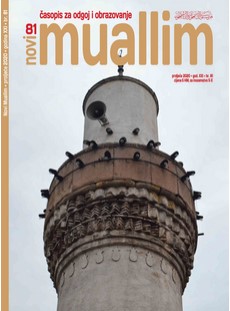PITANJE KONAČNOG SUVERENITETA KROZ PRIZMU DVA KLASIČNA I DVA MODERNA TEFSIRA
THE ISSUE OF ULTIMATE SOVEREIGNTY IN ASPECT OF TWO CLASSICAL AND TWO MODERN TAFSEER
Author(s): Ilma DelićSubject(s): Islam studies, Government/Political systems, Politics and religion, Comparative politics
Published by: Rijaset Islamske zajednice u Bosni i Hercegovini
Keywords: God’s sovereignty; secular state; democracy; pluralism; judgement;
Summary/Abstract: As opposed to democracy as a form of government wherein it is generally understood that the ultimate power belongs to people, we here have Islamic political system where the ultimate authority is actually affirmation of the sovereignty of God’s will. Thus the following question arises: are the principles of democracy opposed to the principles of the Sharia? This article offers a comparative view of interpretations of ayahs of the Qur’an containing the word hukm (judgement, verdict, authority, command, decree, decision) as seen in two classical and two modern interpretations of the Qur-an. It is the fiftieth ayah of the surah Al-Ma’idah - (Then is it the judgement of (the time) of ignorance they seek? And who is better than Allah in judgement for a people who are certain (in faith)? It is concluded that the democracy and pluralism in the Muslim world have their bases in religious principles and not on the bases of the principles of the late modern West. In practice this would imply that realisation of the principles of Islam is best attained in well-controlled separation of religious and political organs.
Journal: Novi Muallim
- Issue Year: 2020
- Issue No: 81
- Page Range: 66-73
- Page Count: 8
- Language: Bosnian

